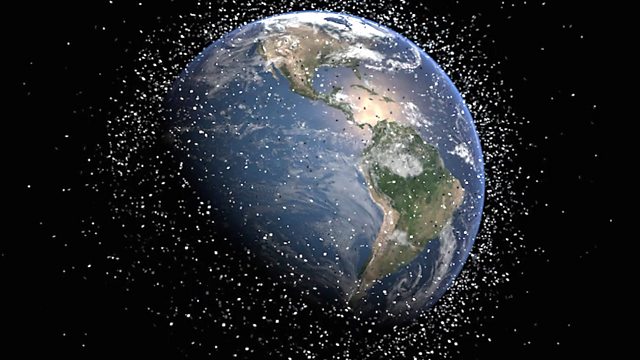Dish Network Faces Landmark Fine for Space Junk: A Dive into US Regulatory Challenges

The issue of space junk has been looming over the global aerospace community for decades. As humanity continues to explore and exploit the vast expanse of outer space, the problem of space debris has grown exponentially. One of the most significant milestones in addressing this concern in the United States was the imposition of the first-ever fine on a satellite operator, Dish Network. This landmark event raises questions about space debris mitigation and the regulatory challenges that lie ahead.

The Growing Problem of Space Junk
Space junk, or space debris, refers to the defunct satellites, spent rocket stages, and other discarded fragments that orbit the Earth. These objects pose a significant threat to active satellites, space stations, and spacecraft. The proliferation of space junk has been driven by decades of launches, satellite deployments, and space missions, resulting in thousands of objects cluttering Earth’s orbital pathways.
The Impact of Space Debris
The consequences of space debris are far-reaching and encompass both economic and safety concerns. Collisions with even small pieces of debris can have catastrophic effects on operational satellites, rendering them inoperative or causing mission failures. Moreover, the risk to human spaceflight missions, such as the International Space Station (ISS), has become increasingly concerning. The ISS regularly adjusts its orbit to avoid potential collisions with space debris, demonstrating the gravity of the issue.
US Regulatory Framework for Space Debris
In the United States, the Federal Communications Commission (FCC) plays a pivotal role in regulating satellite operators. The FCC licenses satellite systems and imposes conditions to ensure they operate safely and do not pose a threat to other space objects. One such condition is the requirement for satellite operators to actively manage and dispose of their satellites at the end of their operational life to mitigate space debris.
Dish Network’s Violation
In 2022, Dish Network found itself in hot water when it became the first-ever satellite operator to face a fine for its handling of space debris. The company was accused of neglecting its obligation to safely decommission one of its satellites, EchoStar-23, which was no longer operational. This neglect led to the satellite remaining in orbit as space junk, posing a potential threat to other satellites and the ISS.
The Landmark Fine
The FCC, responsible for regulating the use of radiofrequency spectrum and satellite operations, took a decisive step by imposing a $5 million fine on Dish Network for its failure to dispose of EchoStar-23 responsibly. This fine marked a significant milestone in the regulatory landscape, sending a clear message that satellite operators must take their space debris mitigation responsibilities seriously.
Dish Network’s Response
Dish Network acknowledged its lapse in complying with space debris mitigation regulations and expressed its commitment to rectifying the situation. The company pledged to address the EchoStar-23 issue promptly and to enhance its practices to ensure the responsible disposal of satellites in the future.
 Implications and Challenges
Implications and Challenges
The landmark fine against Dish Network underscores several critical issues and challenges in the realm of space debris mitigation:
- Regulatory Enforcement: The EchoStar-23 case highlights the need for rigorous enforcement of space debris mitigation regulations. As the commercial space industry continues to expand, regulatory bodies like the FCC must ensure that satellite operators comply with their obligations to protect the space environment.
- International Cooperation: Space debris is a global issue that requires international cooperation. While the FCC’s fine is a significant step, addressing the broader problem of space junk requires collaboration among nations and organizations to establish comprehensive guidelines and regulations.
- Liability and Accountability: Determining liability for space debris incidents is complex, as space objects often change hands and jurisdictions. The EchoStar-23 case sets a precedent for holding satellite operators accountable for their actions in space.
- Space Traffic Management: The increasing congestion in Earth’s orbit necessitates improved space traffic management systems to monitor and avoid potential collisions. Satellite operators must actively contribute to these efforts.
- Sustainable Practices: The space industry is shifting toward more sustainable practices, including designing satellites with deorbit capabilities and exploring technologies for active space debris removal. These innovations will play a crucial role in addressing the space debris challenge.

Conclusion
Dish Network’s landmark fine for its mishandling of space debris represents a significant step in addressing the growing problem of space junk in the United States. This event underscores the importance of regulatory enforcement, international cooperation, liability, space traffic management, and sustainable practices in mitigating the risks posed by space debris. As the commercial space industry continues to evolve, addressing the challenges of space debris will remain a top priority to ensure the long-term sustainability of space activities and the safety of space assets.



